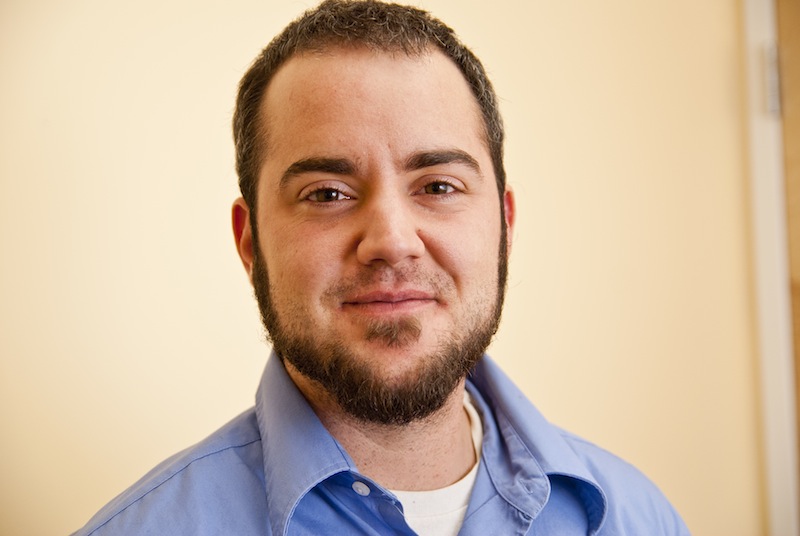For many transgender men and women — the “T” in LGBTQ — Asheville offers a road to acceptance and a comfortable, integrated life. But transgender people often face hurdles in receiving health care, particularly the uninsured. One area clinic, Western North Carolina Community Health Services, helps people scale those hurdles. WNCCHS provides comprehensive care to Buncombe County’s low-income residents; since 2007, it has offered a program for transgender people.
“Aside from hormone therapy, there is a major need within the transgender community for primary health care that is sensitive as well as medically and culturally competent,” says Allister Styan, who coordinates the WNCCHS program. “Not all transgender patients are seeking hormones,” he explains. “Some simply want access to a physician who will treat them with dignity and respect. Given that 19 percent of transgender people have been refused medical treatment due to their status and many are uninsured, this can be very difficult to come by.”

Breaking the silence: “Some [transgender people] simply want access to a physician who will treat them with dignity and respect,” says Allister Styan, who coordinates a health-care program at WNCCHS. (Photo by Max Cooper)
WNCCHS serves about 100 people in its program, and Dr. Jennifer Abbott sees many of them. “When I met our first trans patient, I was uncomfortable with hormone therapy because I had not had any training,” says the family physician. “But then I realized that since this patient was uninsured, there would be no one else to provide this care for him,” Abbott says.
Last summer, she served as medical director for the SouthEastern Transgender Health Summit, hosted by the Mountain Area Health Education Center in Asheville. Approximately 100 medical providers, behavioral health providers, transgender people and business professionals attended the two-day summit. WNCCHS provided some scholarships for attendees, and Abbott remarks, “I felt it was very successful in [its goal], providing education about appropriate and gender-sensitive health and mental-health care to transgender people.”
The summit also allowed participants to gain support. “Last summer, I traveled to and attended the Philadelphia Trans Health Conference, and when I returned I found out about the SETHS summit. I was … overjoyed that my home town had something similar to what you see in larger cities.” says local activist Ben Baechler.
The summit and organizations like WHCCHS help address an overall concern voiced by Baechler, who observes, “In many ways I do feel connected to the gay and lesbian community, as a majority of my friends are a part of [it]. Though, on a whole I feel that many LGBTQ organizations and causes have silenced the T.”
The silence can extend to health care options for transgender people, but that’s changing. Abbott acknowledges that on her own path toward learning more about what her patients needed, she started administering hormones without the specific intention of working primarily with trans people for other aspects of their care. “I read what I could online and in an older version of the [World Professional Association for Transgender Health] Standards of Care, and started with [one] patient. His transition went very well, and our numbers of patients grew after that.”
Styan adds that health care for Asheville’s trans population helps them succeed overall. Hormone treatment and general care are two routes for trans people to feel safe in their communities, Styan explains. “I think Asheville is more accepting of the transgender community than many other places, mainly based on visibility.”
He continues, “Given the size of Asheville, this is a pretty significant number, [but when] the transgender community has higher numbers and greater visibility, there is likely to be more acceptance because people are forced to interact with us and witness our humanity, rather than holding ideas about transgender people that are solely informed by derogatory portrayals in the media.”
For more information about WNCCHS, contact Allister Styan at astyan@wncchs.org.
Basil Soper is a queer writer and the founder of Just Us For All, an Asheville-based group that aims to educate people about the LGBTQ spectrum, and to create change through community.





Before you comment
The comments section is here to provide a platform for civil dialogue on the issues we face together as a local community. Xpress is committed to offering this platform for all voices, but when the tone of the discussion gets nasty or strays off topic, we believe many people choose not to participate. Xpress editors are determined to moderate comments to ensure a constructive interchange is maintained. All comments judged not to be in keeping with the spirit of civil discourse will be removed and repeat violators will be banned. See here for our terms of service. Thank you for being part of this effort to promote respectful discussion.